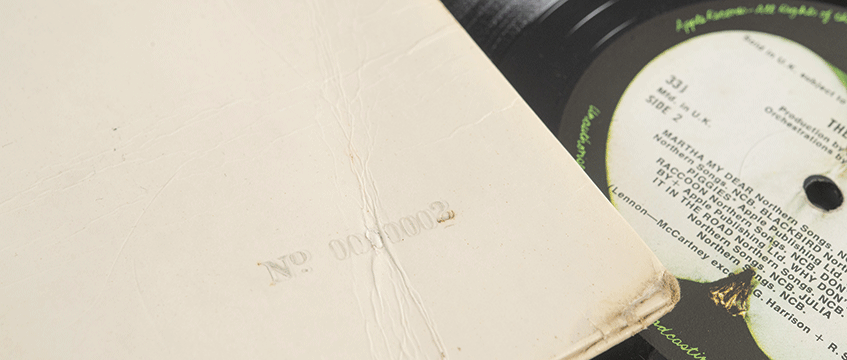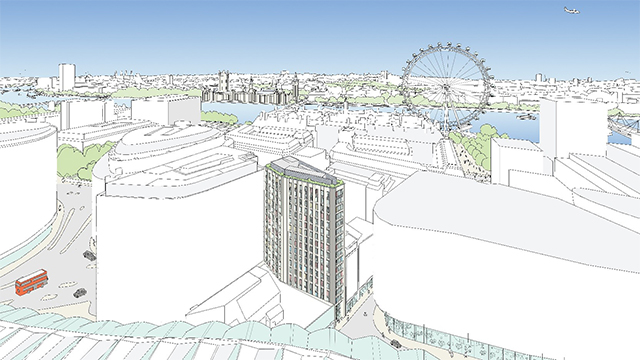There is nothing wrong with seeking support in relation to nerves and anxiety; it is no different to undertaking CPD on technical topics or seeking mentorship on a variety of other skills.
As the Beatles sang:
“Help me if you can, I’m feeling down
And I do appreciate you being ‘round
Help me get my feet back on the ground
Won’t you please, please help me”
Hello, goodbye
So, are nerves a good or a bad thing?
Nerves are good, to a certain extent. They remind us that this is an important time in your career and that anything short of a strong performance may result in your future career plans being put on hold if you are referred by your interview panel.
It is important to recognise if you are someone who is likely to be nervous and to take steps to turn that into a positive outcome. With the right techniques it is possible to turn your nervousness into a catalyst to improve your performance and professionalism.
If presentation is one of your major fears, you can develop some strategies and techniques to manage your nerves so that you can concentrate on delivering an effective and engaging presentation.
When you are nervous, your body reacts physically to that and there are various techniques that will help you focus on your audience, deliver in accordance with their expectations and reduce worry about your nervousness.
The more you can control uncertainty, the less nervous you will feel – allowing you to devote more of yourself to the presentation.
I feel fine
Here are our top tips for effective presentation:
- Know your audience – what are they expecting from you?
- Know your material
- Structure your presentation
- Practise, practise, practise
- Prepare, prepare, prepare
- Calm yourself
Calming techniques can include deep breathing, taking sips of water, taking a pause and smiling at the audience before you start and controlling your delivery speed and timing.
Our favourite exercises to practise are set out in the box.
I want to hold your hand
During the three months post-submission and pre-interview, you will be revising hard. This will undoubtedly create imbalances between your personal and professional lives. You are likely to be working at the same time as preparing for your APC. This can often lead to burnout and feelings of being overwhelmed and anxious. It is really important at this time to stay connected to those close to you, as well as your employer.
Try to keep talking about how you are feeling, reduce unnecessary commitments and know that the heavy workload is only going to be for a limited period of time.
Staying connected to others and ensuring that you look after yourself is key; remember that you cannot succeed if you are not on top form mentally and physically.
Assessors report that a strong, well-delivered presentation is usually followed by a strong interview.
The first 10 minutes of your APC interview are key to following up with focused responses to Q&A as, once you have controlled your nerves, you can show your best, most professional self to the panel.
Top tips
Challenging your thoughts
- Sometimes when you are feeling anxious or nervous, you may have irrational thoughts which focus on the worst-case scenario and getting stuck in a “what if” cycle.
- When you find yourself in this scenario, first stop what you are doing, then consider the following question: “What’s the worst that can happen?”
- Next, try to reframe how you answer the question. Perhaps you thought “I can’t go through with my interview because I am so nervous”. Why not reframe this as “I have been to job interviews before and been fine, therefore I will do my best and give my all in my APC interview”.
Smile
- It might sound silly, but smiling is a great way to combat anxiety and nerves.
- Take a pause and look in the mirror; then smile at yourself.
- If you can’t manage it, hold a pen between your teeth as it’s said that this can stimulate the same muscles as smiling.
- This can help to calm your brain and reduce anxiety levels.
Deep breathing exercise
- Sit comfortably on a chair with a relaxed posture.
- Take slow, deep breaths from the bottom of your lungs. Place your hand on your belly to try to ensure you are breathing from here rather than higher up in your chest. You could also pretend you are blowing up a balloon.
- Try to breathe in and out for four-five seconds each time, slowing it down as you become more practised or even working towards a 1:2 inhalation to exhalation ratio. You should see your belly moving more than your chest when you really master deep breathing.
- Practise this each day, particularly when you are feeling anxious or overwhelmed.
Take a walk outside
- If you are feeling overwhelmed by revision or presentation practice, it’s time to stop what you are doing.
- Head outside for a walk and get some fresh air.
- Listen to a podcast or some music if you find that these help to focus your mind on something else.
- The vitamin D will do you good, as will a break away from tasks that make you anxious.
Visualisation
- Nerves and anxiety are often borne out of uncertainty.
- Speak to others who have been through the APC interview or undertake a mock interview. This will give you a good idea of what to expect in your own interview.
- Then visualise what will happen. Take your mind on a step-by-step walk through of the experience, from what you will do the night before, to your morning route, sitting the interview and how you might feel afterwards.
- Being prepared can help to reduce anxiety and provide more certainty of what might happen and how you might feel.
The quick quiz (answers at the bottom)
1.Which type of breathing is likely to help you relax more?
- a) Belly
- b) Chest
2. What is the current inflation rate?
- a) 8.9%
- b) 9.9
- c) 10.9%
3. Who led the RICS independent review of valuations?
- a) Lord Bichard
- b) Alison Levitt QC
- c) Peter Pereira Gray
Further reading and resources
- Contact RICS LionHeart if you need someone to speak to at any time
- Find out about the RICS Independent Review of Real Estate Investment Valuations
- Breathing exercises from Headspace
Rachel Saint DipSURV MRICS and Jen Lemen BSc (Hons) FRICS are co-founders and partners of Property Elite











